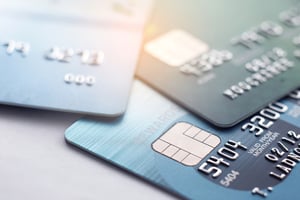Should I Use Credit Cards and Pay Creditors Before Filing for Bankruptcy in Saint Paul, Minnesota?
Filing for bankruptcy helps thousands of Minnesotans deal with, and eliminate, debt, each year. Many people contemplating filing for bankruptcy often wonder if they should be paying back their creditors and using their credit cards up until when their bankruptcy is filed. The short answer is, “no,” as using credit and paying back creditors does not benefit a person who will be filing for bankruptcy. In fact, doing this can actually cause issues in that person’s bankruptcy case.
Once a person has decided they will be filing a bankruptcy case, they are well advised to stop paying on their debts. It doesn’t benefit them, and they are really just throwing money away that could be used for other more important things, such as paying for their car, home, groceries, etc. In some cases, paying back creditors shortly before filing bankruptcy can actually cause issues in their bankruptcy case.
Bankruptcy law provides that whenever any individual creditor gets paid a total of $600, or more, within 90 days of a person’s bankruptcy case being filed, it may be considered a “preferential payment.” Bankruptcy law provides that all creditors are to be treated fairly in bankruptcy, and when the debtor (what you call a person who files for bankruptcy) “prefers,” or favors, one creditor over their other creditors, it may give the trustee the right to give extra money to the other creditors In a chapter 7 case, the trustee may be able to demand that the creditor repay the additional money to the trustee to be distributed amongst the other creditors. In a chapter 13 case, the debtor may actually have to pay a bit more over the course of their 3 to 5 year repayment plan to ensure the other creditors are paid fairly to compensate for the preferential payment.
Although the debtor will likely not care too much about whether their ordinary creditors (i.e. Discover or Visa) are negatively impacted by the trustee taking back money from a preferential payment to pay other creditors, they will likely care if the individual is a close friend or family member. The Bankruptcy Code provides that payments made to an “insider” totaling $600, or more, may be considered a preferential payment, if made within 12 months of the debtor’s bankruptcy case being filed. Although the Code specifically defines an “insider” as a relative of the debtor, bankruptcy courts have ruled that a close friend of the debtor’s may be considered an insider, depending on the nature of the relationship between that person and the debtor. For this reason, it is obviously wise for a person to refrain from repaying loans to close friends or family members prior to filing for bankruptcy. If such a loan has been repaid to a close friend or family member, the debtor is often better off either waiting until after it’s been more than 12 months since the repayment was made to file their case, filing a chapter 13 case so that they simply pay this amount back over the course of their chapter 13 plan, or simply preparing to pay the trustee in a chapter 7 case, so that the chapter 7 trustee does not go after the close friend or family member for the money.
It is also not a very good idea for a person to continue incurring debt prior to filing bankruptcy, unless they absolutely need to for essential things (i.e. groceries they could not otherwise afford). The closer in time that a person incurs debt to the filing of their bankruptcy case, and the money that they borrow or put on credit, the more likely that it will be considered “fraud” by the bankruptcy court. When a person incurs debt before filing bankruptcy, knowing they will not be able to pay it back, and knowing it will just be discharged in their bankruptcy case, they commit fraud against the creditor from whom they borrowed. Doing this gives the creditor the right to object to that particular debt being discharged in their bankruptcy case and, if the fraud is sufficiently egregious, may place the debtor’s entire discharge in jeopardy.
It is worth noting that the Bankruptcy Code provides that when a debtor incurs $800, or more, in debt in the 90 days prior to their bankruptcy case being filed for “luxury” goods or services (i.e. a cruise trip or a new ATV), that debt is presumed to be fraudulent, and therefore, not dischargeable. The Code further provides that cash advances of $1,100, or more, when incurred within 70 days before the debtor’s bankruptcy case is filed, are also presumed to be fraudulent and not dischargeable. The debtor may rebut the legal presumption that these types of debts are fraudulent with evidence showing that the debt was not used to acquire “luxury” goods or services, and rather for things necessary for the debtor’s basic support (i.e. groceries, rent, car repairs, etc.). However, it is wise for the debtor to avoid incurring debt or taking out cash advances shortly before filing bankruptcy, if at all possible.
Bankruptcy law can be complicated, and for this reason, it is always best that a person considering filing for bankruptcy first consult with an experienced bankruptcy attorney before filing their case to ensure their case goes smoothly and with as few issues as possible.
CALL NOW FOR A FREE STRATEGY SESSION FROM A MN BANKRUPTCY LAWYER AT LIFEBACK LAW FIRM
An experienced bankruptcy attorney can also best advise a person on what they should be doing before their case is filed and what things to avoid doing. LifeBack Law Firm has a new office in Saint Paul specifically located at 370 Selby Ave., Suite 224, Saint Paul, MN 55102. Come visit us there, or online, at lifebacklaw.com!






